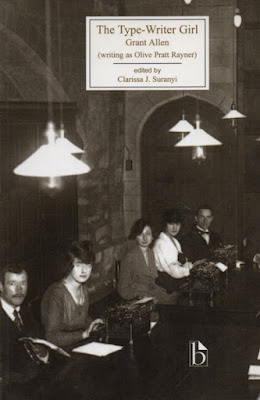Short pieces on books I've always meant to review (but haven't).
The Water-Drinker
I read Patrick Slater's The Yellow Briar a few months after moving to southern Ontario. Our new neighbours and friends had read it in school. Another friend, Michael Gnarowski, was preparing a new edition for Dundurn's Voyageur Classics series. Copies were plentiful in our newly adopted corner of the country. It took little effort, little time, and less than thirty dollars to amass a nice little collection of various editions. The new Dundurn edition set me back twice as much as the others combined.
Slater wasn't really Patrick Slater but a lawyer John Mitchell. The Yellow Briar, sold by the author and his publisher as a memoir, was a hoax. As hinted in the headline of a clipping above – 'Author Who Jailed Self In Spite of Crown Dies' – Mitchell was a troubled soul. This photograph suggests as much:
Patrick Slater [John Mitchell]
Toronto: Thomas Allen, 1937
149 pages
Toronto: Thomas Allen, 1937
149 pages
I read Patrick Slater's The Yellow Briar a few months after moving to southern Ontario. Our new neighbours and friends had read it in school. Another friend, Michael Gnarowski, was preparing a new edition for Dundurn's Voyageur Classics series. Copies were plentiful in our newly adopted corner of the country. It took little effort, little time, and less than thirty dollars to amass a nice little collection of various editions. The new Dundurn edition set me back twice as much as the others combined.
 |
| l-r: the 1933 Thomas Allen edition, the 1963 Macmillan edition, the 1966 Macmillan edition, the 1970 Macmillan edition, and the 2009 Dundurn edition. |
My lazy pursuit was encouraged by clippings left by former owners. These were found between the pages of one of the two Thomas Allen copies I own:
I really liked The Yellow Briar, but can't quite remember why. Wish I'd posted a review on this blog. I didn't because these new neighbours and friends were so familiar with he book; it didn't seem neglected or forgotten. As years passed, I realized that the offspring of our new friends and neighbours – closer to me in age – knew nothing of Patrick Slater and The Yellow Briar.
Slater wasn't really Patrick Slater but a lawyer John Mitchell. The Yellow Briar, sold by the author and his publisher as a memoir, was a hoax. As hinted in the headline of a clipping above – 'Author Who Jailed Self In Spite of Crown Dies' – Mitchell was a troubled soul. This photograph suggests as much:
The image comes from yet another clipping – this one from Saturday Night – which I found in the pages of my copy of The Water-Drinker.
Published four years after The Yellow Briar, The Water-Drinker is a collection of verse coming from a man who'd previously published only prose. It begins with a twenty-one-page introduction in which Slater/Mitchell offers a mea culpa, before expounding on literature, poetry, growing old, and purse picking. The thirteen poems that follow are interrupted by nine colour plates featuring paintings by F.H. Varley, Paul Kane, Cornelius Krieghoff, and Maurice Cullen, amongst others. A tenth illustration – uncredited – appears only in black and white:
Might it be by the poet himself?
My copy, purchased in 2010, once belonged to Louis Blake Duff (1 January 1878 - 29 August 1959). It appears to have been a birthday gift, presented on his sixtieth birthday:
My copy, purchased in 2010, once belonged to Louis Blake Duff (1 January 1878 - 29 August 1959). It appears to have been a birthday gift, presented on his sixtieth birthday:
Duff was the author of several books and chapbooks, most having to do with the history of southern Ontario. A respected local historian, his death was noted by William Arthur Deacon in the pages of the Globe & Mail:
Dr. Duff deplored what he called the booklessness of Canadians, their disinterest in literature. As a passionate bibliophile – his own library contained 10,000 volumes – he could not help but be depressed by this characteristic which he considered a national trait.My copy of The Water-Drinker was one of Dr Duff's 10,000 volumes.
It set me back all of $2.50.






















































